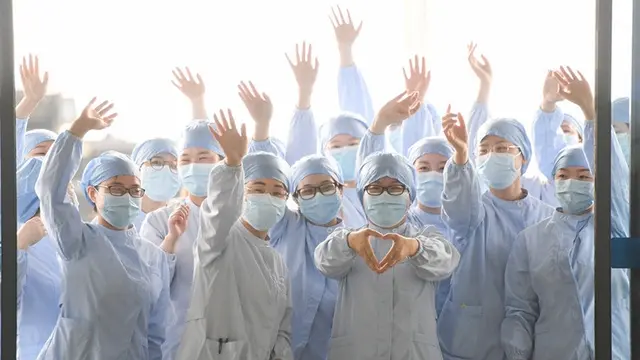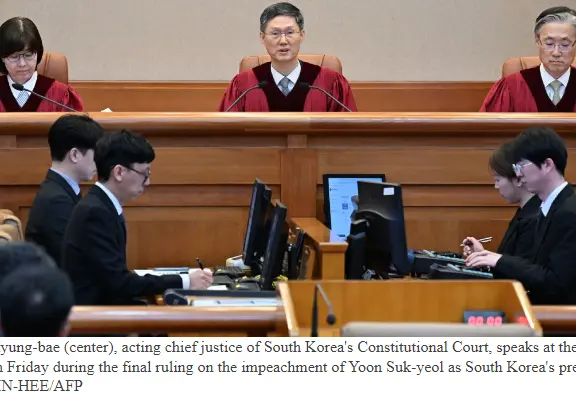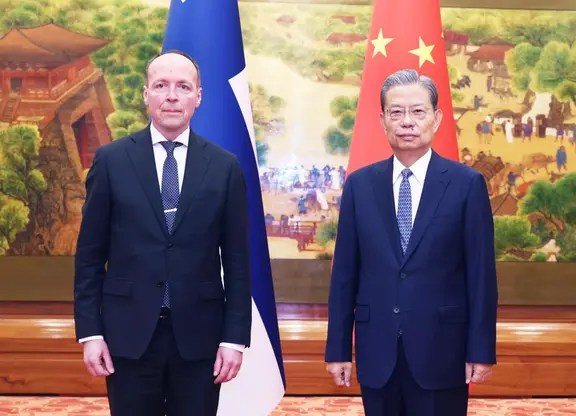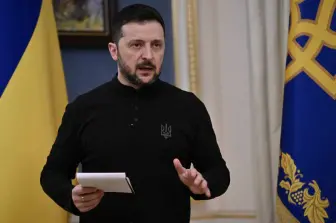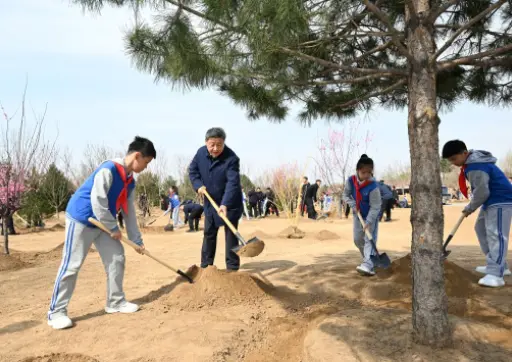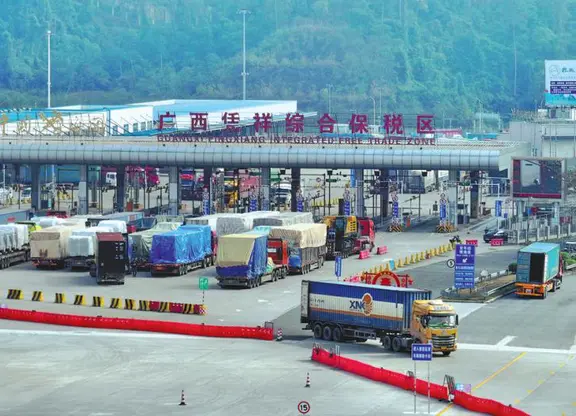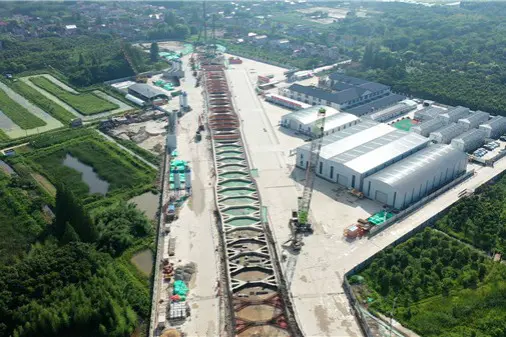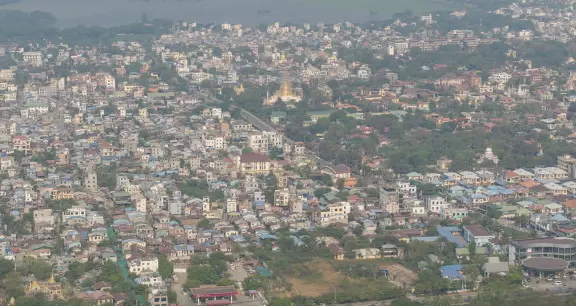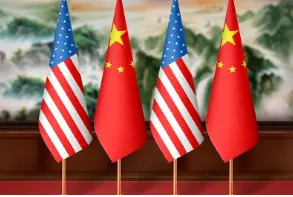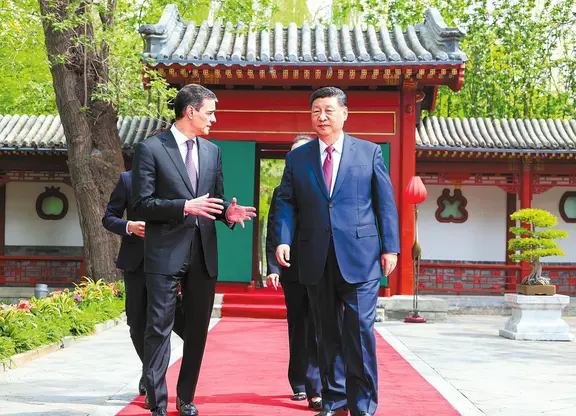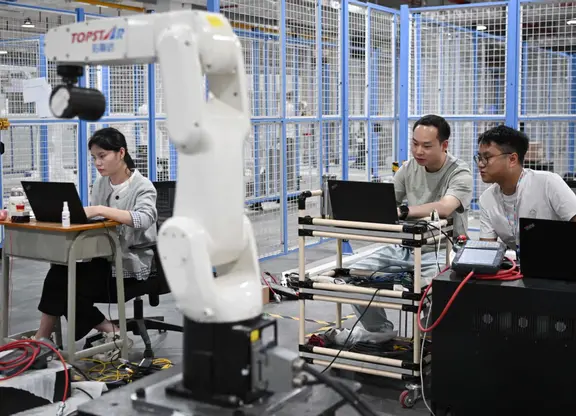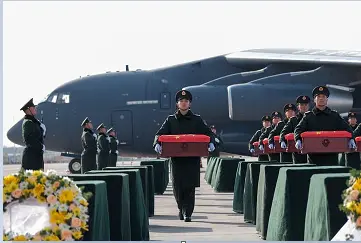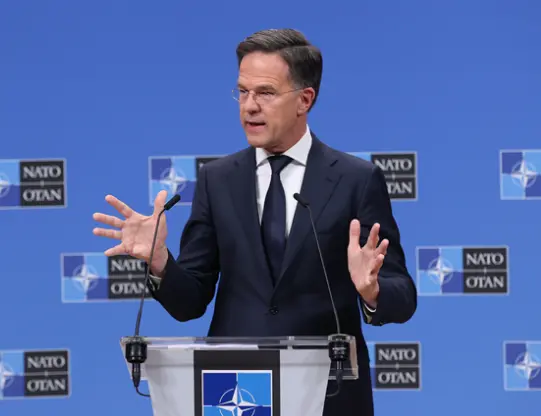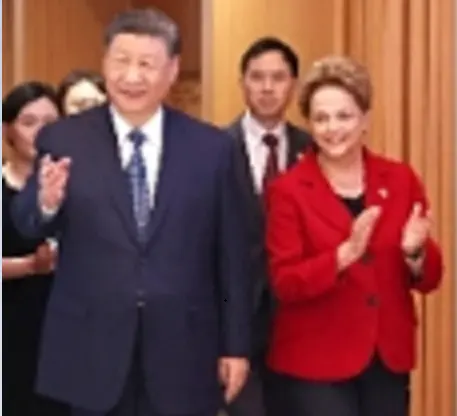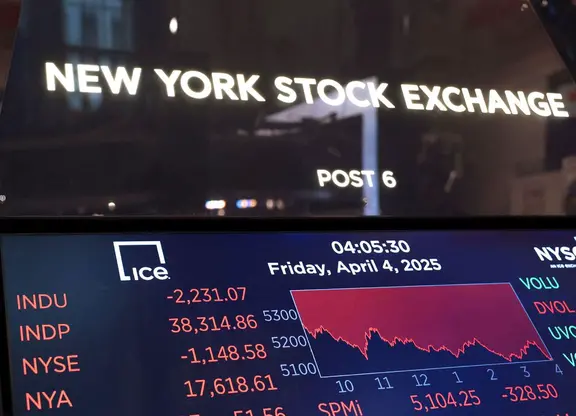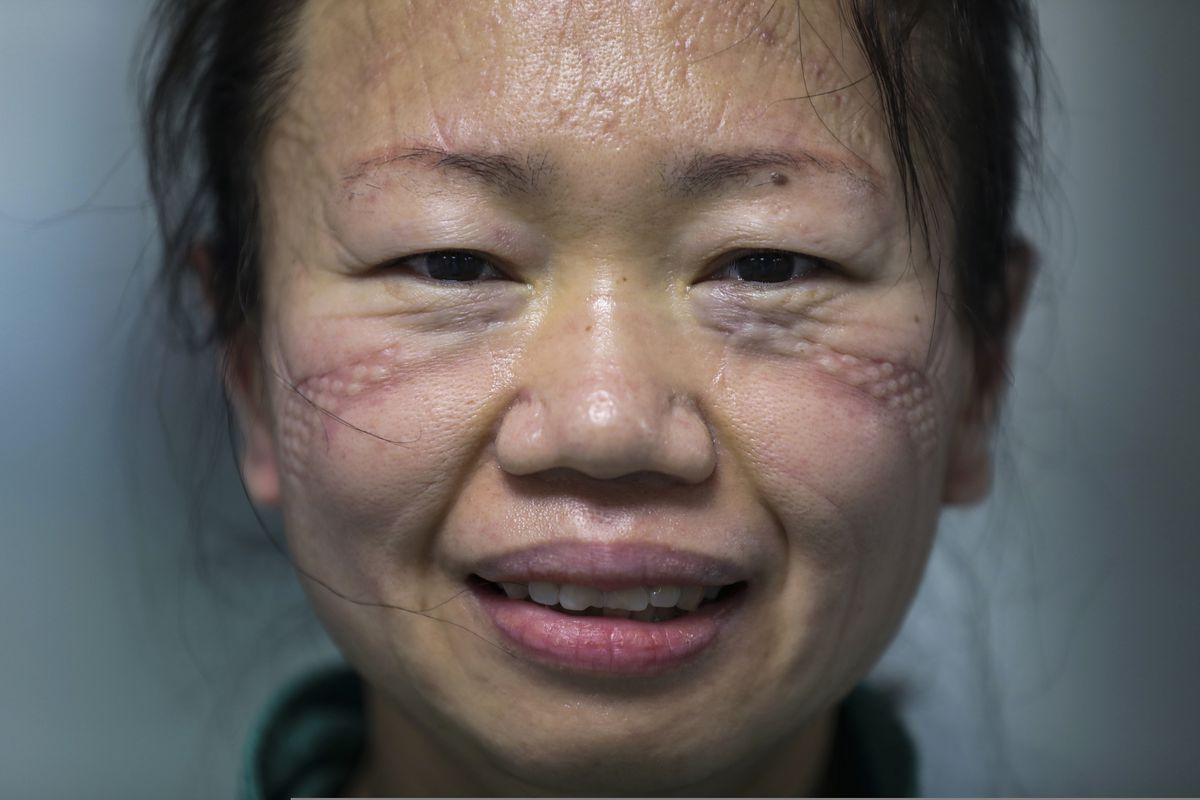
Marks from wearing a protective mask on the face of a nurse at Jinyintan Hospital in Wuhan. /AP
Being a medical worker on the front lines of fighting a disease is always challenging. In the case of contagious diseases, besides the expected long working hours, medical workers also have to face the risk of being infected and worrying about bringing the virus home. This year's coronavirus pandemic made all of these aspects a sad reality.
In China, "The Oath of a Medical Student" starts by saying "Health-related, life entrusted," reflecting how normal citizens entrust their lives in the hands of doctors and other medical workers. They are the first to welcome us in this world and, sometimes, the last ones to take care of us when we reach our end.
According to China's National Health Commission statistical report released in 2019, China has 3.8 million licensed medical practitioners and 2.77 registered nurses per 1,000 people. The number of sickbeds per 1,000people in medical and health institutions rose from 6.03 in 2018 to 7.10 in 2019.
Amid COVID-19 pandemic, the cloud of gloom and fear that floated above everyone's heads didn't affect the brave hearts and big love of Chinese medical workers as they firmly stand on the frontline fighting the coronavirus and saving people's lives.
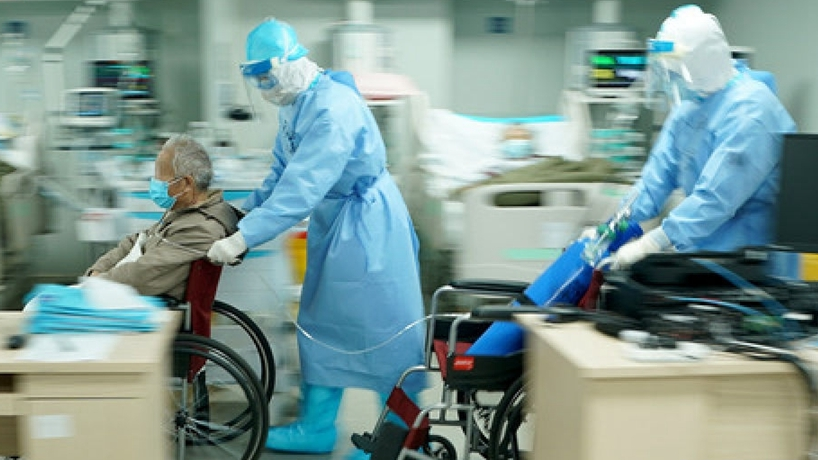
Doctors transfer COVID-19 patients in Wuhan. /Xinhua
Cure, relieve pain, and comfort
Dr. Huang Luqi believes that as a medical worker you "cure sometimes, relieve the pain often, and always give comfort." He follows this mantra time and time again when treating COVID-19 patients.
Huang is an academician in the Chinese Academy of Engineering and president of the China Academy of Chinese Medical Sciences and he is also a member of the first medical task force heading to Wuhan when the coronavirus outbreak started.
He led a team of top medical workers to the epicenter of the epidemic during the Chinese Spring Festival, leaving his 84-year-old mother at home. "I could not stay at home seeing people suffering from that unknown disease. Many frontline health workers are very young, they are just kids to their parents. I felt that I had to go to the battlefield myself, period," said Huang.
Having faith in his research on pathology, Dr. Huang Luqisuggested the use of "Huashibaidu," a formula made into granules and easy to prepare. "Just like making a cup of coffee," he said. Huashibaidu formula was widely distributed in hospitals in Wuhan. The strict clinical comparison research has proved theeffectiveness of "Huashibaidu" in treating patients with COVID-19.
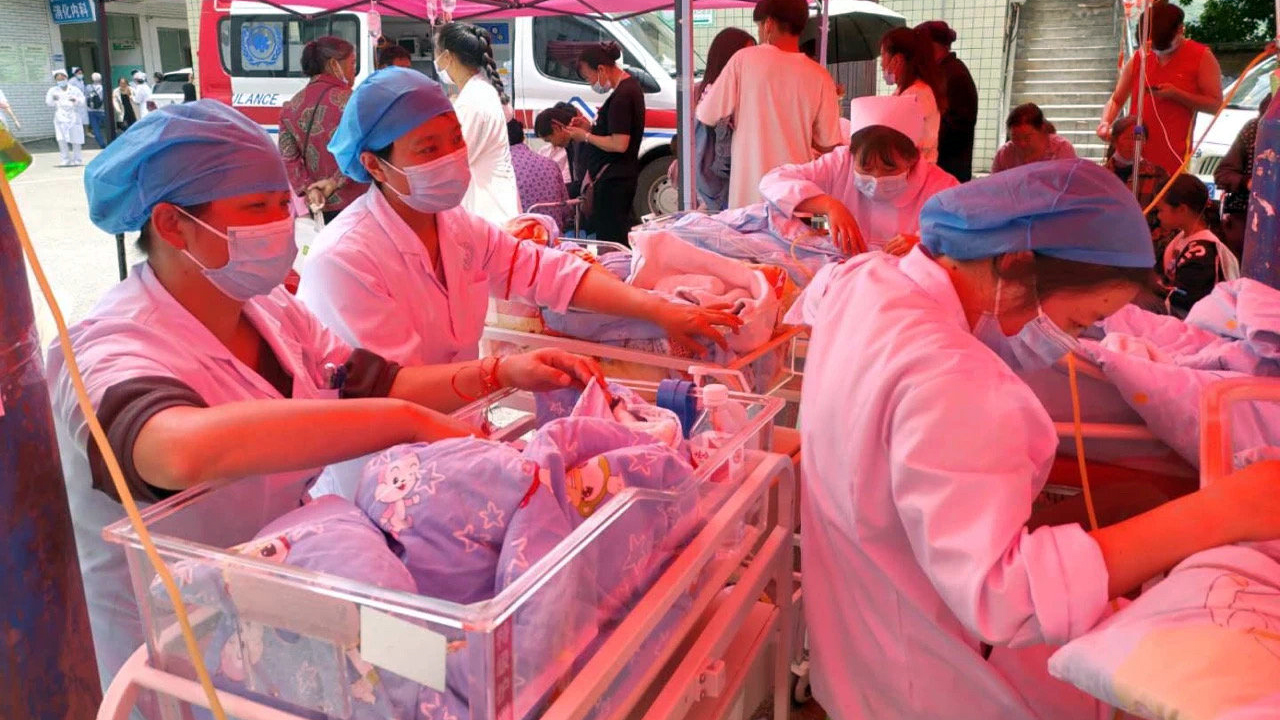
Medical staff from a local hospital's neonatology department save 26 babies during SW China's earthquake, July 2020. /CGTN
'If I can save just one patient, it will be worth it'
"As a doctor, I must try my best to treat severely ill and critical patients. If I can save just one patient, it will be worth it," Zhou Ning, a doctor in Wuhan, the epicenter of the coronavirus epidemic, said when asked about why he was returning to the front line after recovering from novel coronavirus pneumonia.
Zhou is the deputy director of the department of cardiology at Tongji Medical College of Huazhong University of Science and Technology in Wuhan. He started to show symptoms similar to pneumonia caused by the virus four days after receiving a patient suspected of infection on January 17.
Zhou voluntarily put himself under home quarantine when his symptoms appeared. Using his medical knowledge, Zhou treated himself with pharmacotherapy and made sure he had plenty of rest during his home quarantine. These measures proved effective, and he gradually recovered.
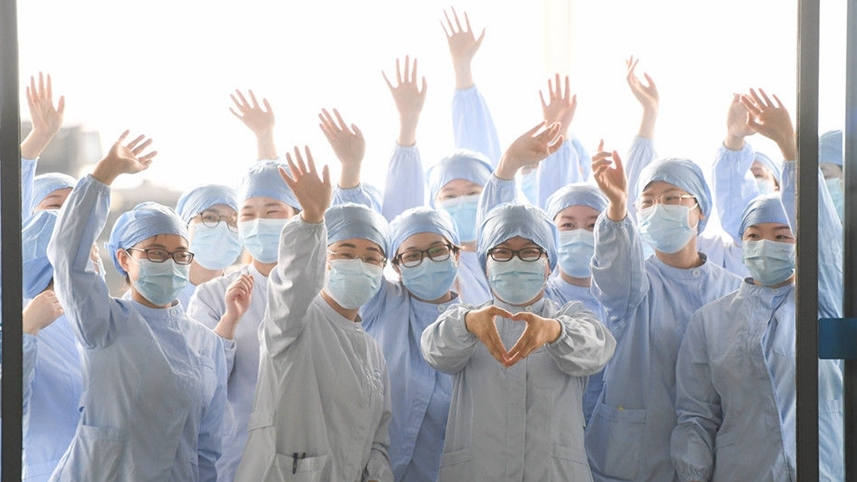
Medical workers greet their families from an isolation ward in Jinan, Shandong Province. /Xinhua
After his recovery, Zhou wrote about his experience in an article telling people how to fight the disease during home quarantine, quickly going viral on Chinese social media.
"I still believe that we will definitely defeat the virus as long as we unite as one and fight the epidemic in solidarity," Zhou wrote in the article after returning to his post in February.
"My hospital was worried that I might not be able to handle the work. But as a designated hospital for treating severely and critically ill patients, we are shorthanded. Treating diseases and saving patients are a doctor's most important responsibilities," Zhou said.
'I will never leave this village'
Healthcare workers are not heroes only in special hard times. They are silent healers. In remote areas of China, where people still live below the poverty line, they fight to help those in need and to keep others away from disease.
Medical workers in those regions are called "doorkeepers." At the township and village levels, hospitals are normally poorly equipped, and health insurance sometimes doesn't work properly, so medics have more responsibilities to safeguard residents' health.
"I am willing to be a lifelong doorkeeper for my people if I could," said Wang Jinping. She is the only doctor in a fishing village in southeast China's Fujian Province. Located by the coast, ships are the only transportation means there. Since the outbreak of COVID-19, she's been staying up late every night to check health supplies and medical personnel at the port.
Most of the left-behind villagers are elderly people, and Wang said she could not imagine what will happen if someone gets infected by the coronavirus in the village.
During other uneventful times, villagers here rely on the medicine that Wang brings back from places afar. She got rheumatoid arthritis as she usually carries those baskets full of medicine herself via ferry. "I don't care about my pain. I only hope villagers here can have a better and healthier life."
"I will not leave this village," said Wang, who's proud to be the only doctor on this small quiet island.
(With input from agencies)
 简体中文
简体中文

